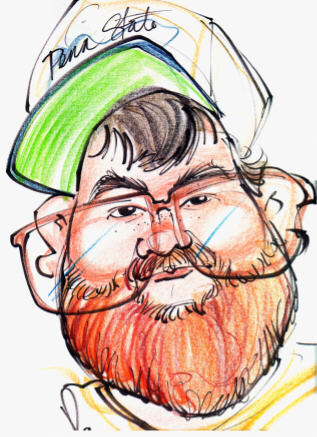Another Good Bit-o-Writin'
For me to enjoy a novel -- not just reading it for something to do -- it needs a hook. As a genre, Science Fiction is often sufficient in and of itself, but in other genres I need an engaging plot or at least rather good writing. Not only is this excerpt more than qualified as such, but I find myself agreeing with it's argument, somewhat to my alarm.
“Karl Marx said that religion is the opiate of the people, but he was wrong. Religion is not the opiate, it is the incendiary of the people! Never is evil done so well as when it is done in the name of religion! Never is cruelty so absolute as when it is empowered by self-righteous anger! Never has so convenient an excuse as religion been found for one man to rob or murder another! Religion has been the cause of more wars, more crusades, more pious inquisitions, more discrimination, more inequity, more prejudice, more injury, more intolerance, more fanaticism, more narrow-mindedness, more injustice than any other cause known throughout history! Hindus murder Muslims, Muslims murder Jews, Catholics murder Protestants, Buddhists murder Hin … there’s just no end” [Beauseingneur, James. Birth of an Age. Warner Books:, New York, NY (2003)].What perturbs my sympathy is that the character espousing in this diatribe is a pawn of the Anti-Christ. Right, it's fiction. I know that. Beauseingeur has created characters among the netherworld's cadre in his Christ Clone Trilogy that are far more beliveable than one finds in apocalyptic Christian fiction. Recall how terrifyingly potent Al Pacino's portrayal of Satan in the movie The Devil's Advocate (1997) or Max Von Sydow's rendering in Needful Things (1993) were and you'll have the idea. To create this dead-on impression one would believe that Beauseingeur has met the Great Deciever in person; that all the attributes Evil has were studied with care and molded by the author for his purposes. The dialogue utilizes just a few of these, but enough to be effective: cold logic, inflamed passions, and faithfully unequivocal truth.
The Father of Lies probably tells the truth more often than not, I would imagine. Everyone knows it is easier to tell the truth. But when used to sow doubt, to sway indecision, to quench or enrich emotion, it is far more powerful than a litany of lies. That's what the above excerpt shows us. I can't help but follow in concert because I made much the same assertion many times, both before and after reading the novel. In this stand-alone context, there probably is nothing wrong with the sentiments, lax as they may be in evidential support.
Within the novel, though, the context is the abolition of Christianity and other faiths in prelude to the establishment of the one World Religion created by the Anti-Christ. Twist. There it is. Truth becomes a weapon. The thought chills me sufficiently that I have trouble composing coherent thoughts on the subject and I find myself parsing each sentence and fragment as a judge examining testimony might.
My trepidity is clear proof that if I don't leave Earth on the first trip to Heaven, I sincererly doubt that I would survive the Tribulation with my soul intact. There but for the Grace of God ... and a keen awareness of the opposition's tactics and weapons. The truth can be a trap, but the Truth will set you free. Have the faith of a saint, not a fool.

